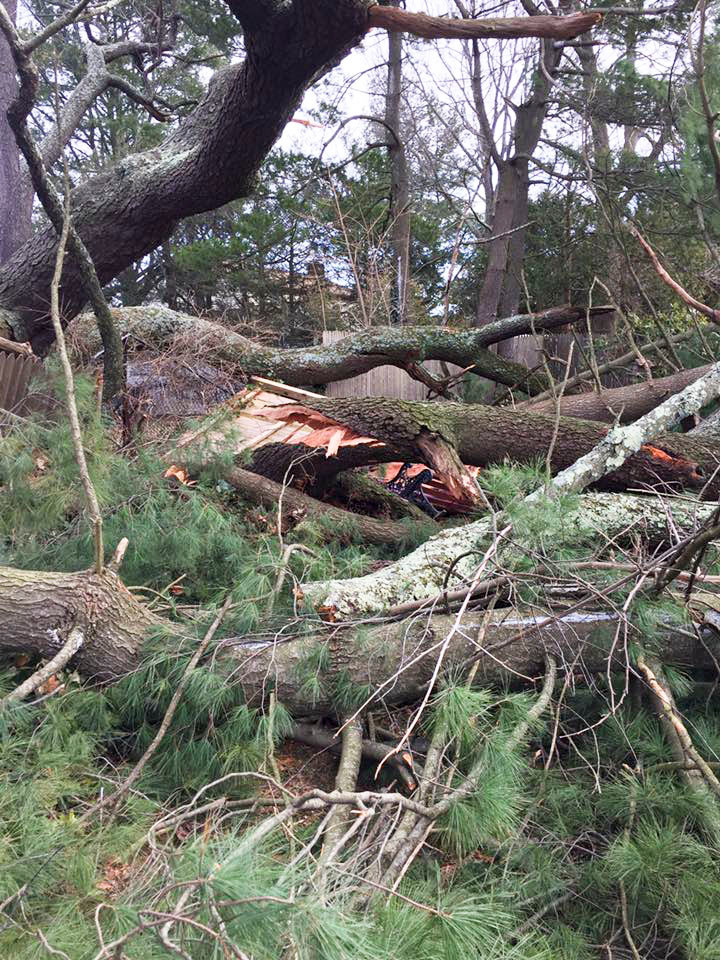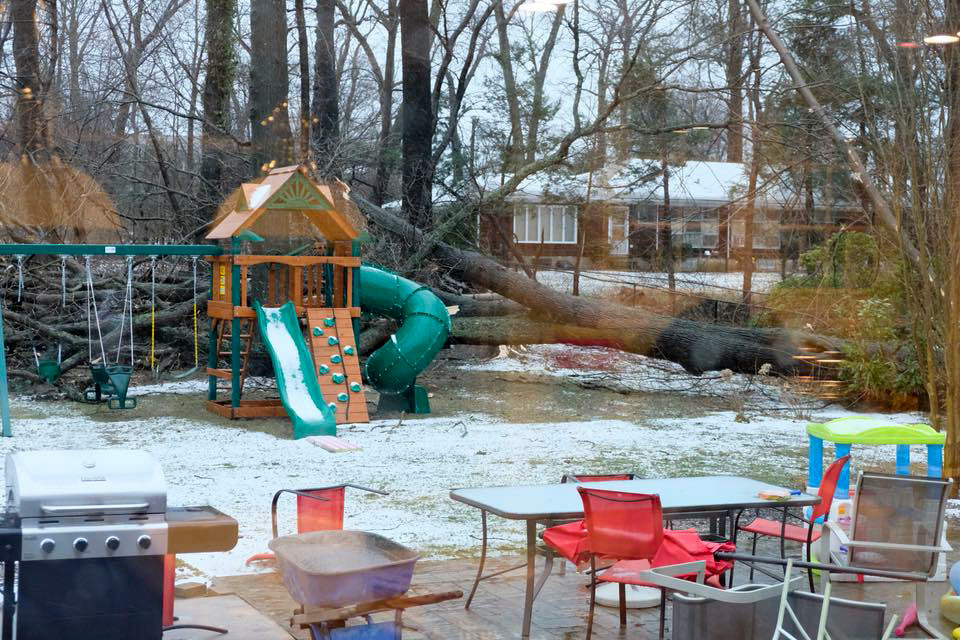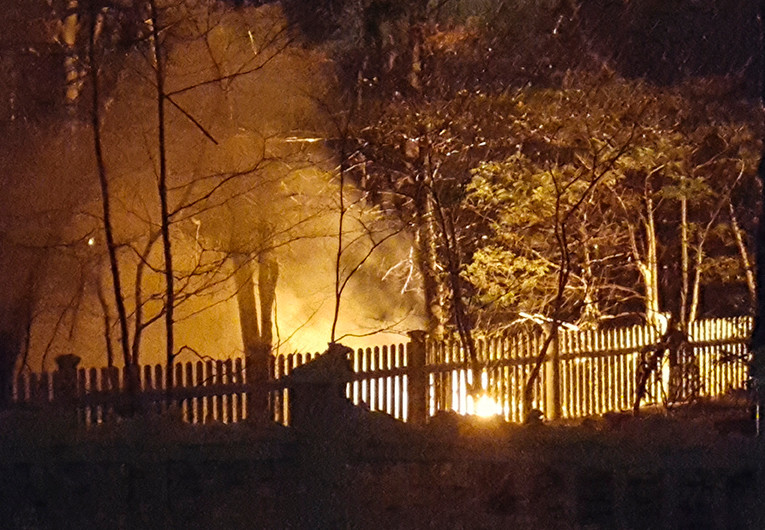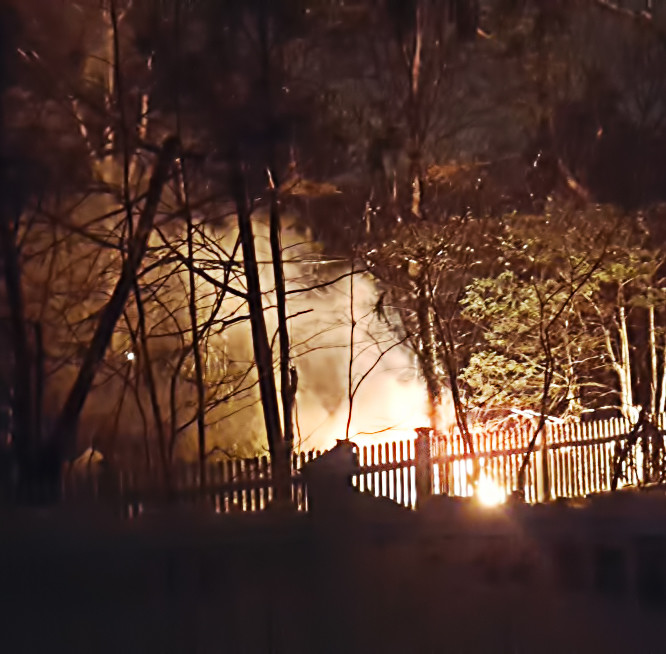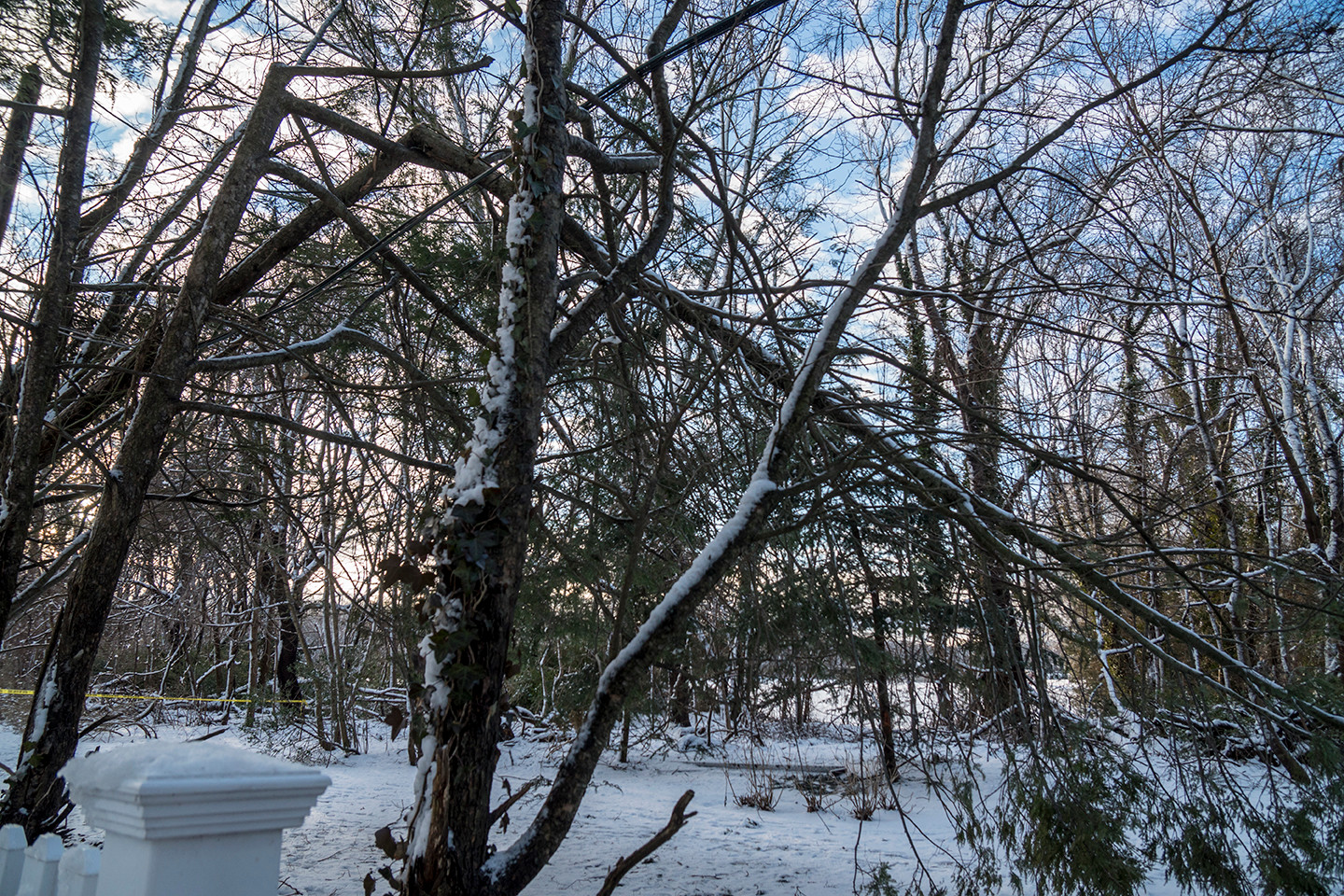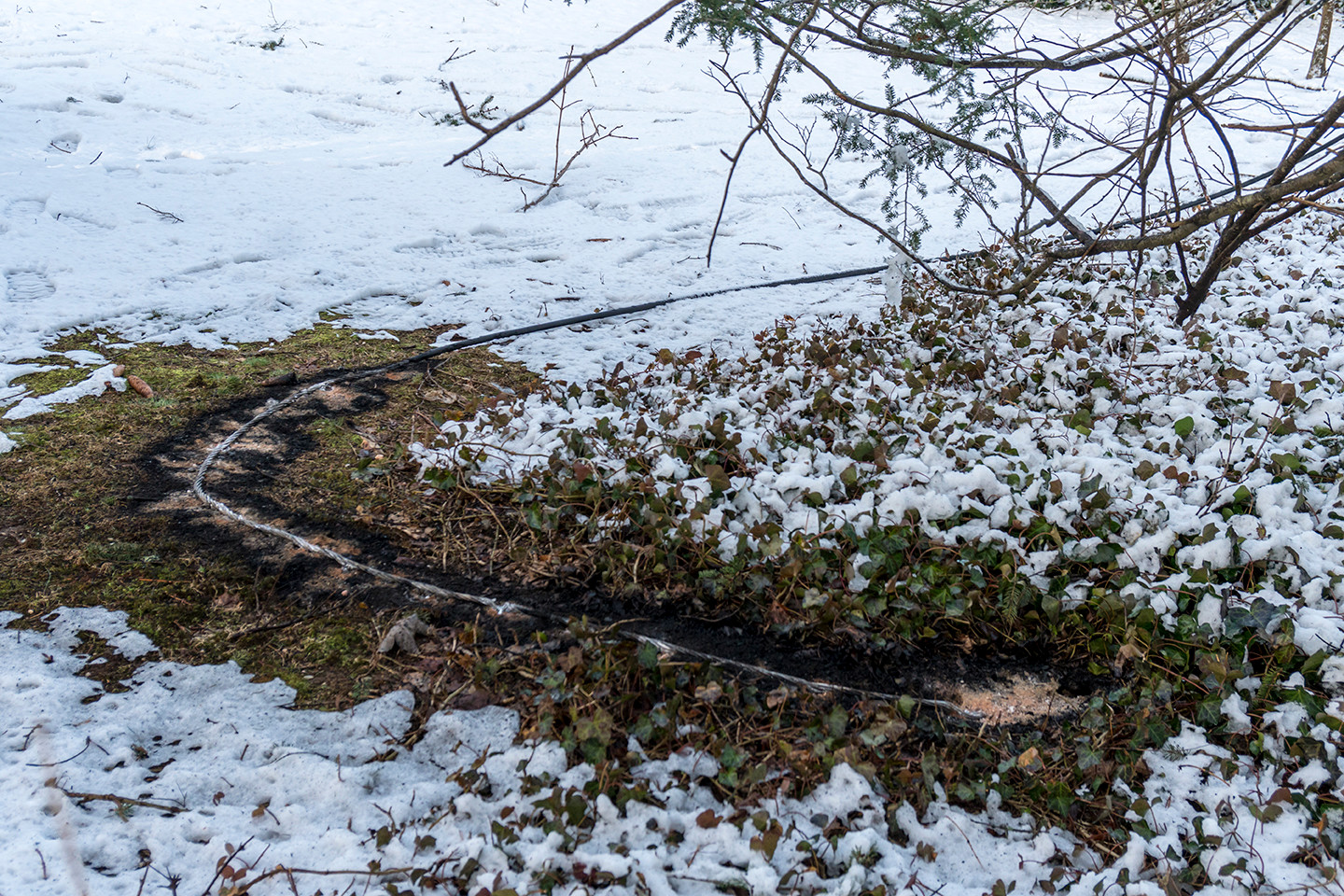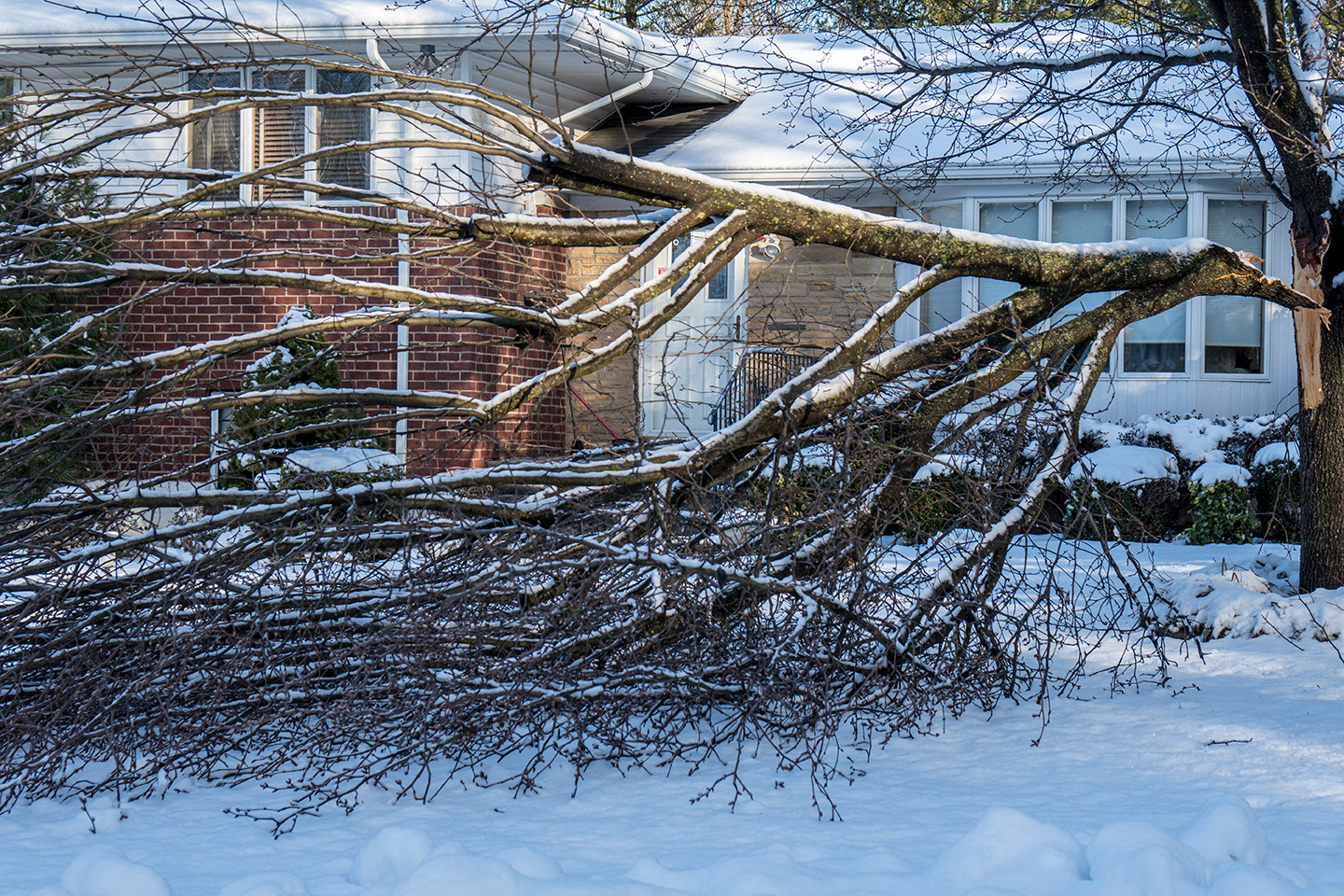Glen Cove gears up for nor’easter: round 2
Still recovering from the first one, North Shore faces second winter storm in a week
Update: See above for photos that one of our photographers took outside her home in Glen Cove. A tree that fell over a wire, which snapped, and started a fire that burned the rubber coating off.
Among the ravages of a nor’easter late last week in Glen Cove, Mayor Tim Tenke listed the following: a mudslide, and a battered, damaged granite sea-wall near Morgan Park; a beach — Prybil — whose sand has been completely swept away; downed trees around the city that wreaked havoc on any vehicles, fences, and electrical lines in its path.
The damage wasn’t limited to public amenities. A neighbor’s tree fell into the yard of Madeline Schnabel Brisotti, of Porter Place in Glen Cove, knocking down four of her own trees like dominos, and badly damaging her fence.
Less than a mile south of Brisotti, a children’s swing-set in the backyard of Anthony Imbriano, of Sea Cliff Ave. in Glen Cove, had a near-miss with his neighbor’s fallen tree. “Cleaning it up will be a chore,” he said, “but it could be worse.” He added that between he and some workers from his landscaping business, “should be able to tackle this and have some nice firewood at the very least.”
The March 2 storm was the first of two nor’easters in the first week of March. Even as the Herald Gazette goes to press on Wednesday, the second, admittedly weaker storm, has been in the process of depositing a great deal of snow throughout the day.
The second storm is expected to exacerbate an electrical infrastructure already weakened by the first, which left some Glen Cove residents without power throughout the weekend and into Monday.
Elizabeth Flagler, a spokeswoman for electric company PSEG, said that across Long Island, there were over 120,000 reported outages, and that by Monday afternoon, there were still 88 customers without electricity. “It took, in many cases, multiple crews to get the wires untangled and restrung,” she said, adding that many of the repairs took place during the height of the storm.
“As soon as the crews finish restoring power from the prior storm,” Flagler said, “we’re going to give them a rest and then get them back out there” to harden the power lines in anticipation of the mid-week storm.
It remains to be seen how Glen Cove’s other infrastructure will fare, and what will need to be done in the aftermath. Tenke said that in order to repair the erosion to Prybil Beach, which he said was “essentially gone,” the city would likely have to truck in sand from elsewhere to reestablish it. It was too soon to know what that process would look like.
He also talked about bringing in the Army Corps of Engineers to figure out how to repair the damaged sea wall near Morgan Park. “It’s made out of granite blocks,” he said, with each one weighing over a thousand pounds. The wall, he said, was damaged, “significantly, to the point where the wall itself is leaning inland.”
Despite the work that the city still faces, he said he was proud of the work that it had already done. He lauded Manny Grella, general foreman of the Department of Public Works, for his quite literally tireless efforts. “Our DPW crew did a phenomenal job,” Tenke said. “[Grella] worked from Friday morning to Saturday morning, slept for a few hours and was right back out there” by 11 a.m. Saturday.
Tenke also mentioned the work of the Glen Cove Police Department, who were tasked during the storm with securing the scenes of downed power lines. Detective Lieutenant John Nagle, the department’s spokesman, said that there were “a host of problems” that the live wires could cause. The electricity could arc from an exposed wire and electrocute someone or start a fire, Nagle said, adding that while the weekend storm caused a fire on one electrical pole, there were no serious injuries reported.
Nagle said that, for the most part, “people stayed off the roadway and that was a good thing.” For the mid-week storm, he said, “We recommend that again. Give public works a chance to get things cleaned up.
“If you’re going to the hospital,” he continued, “that’s fine, we understand. But if you’re going out for coffee, or to go see the high tide at the beach, you’re just putting yourself in danger, and you’re putting us in danger.”

